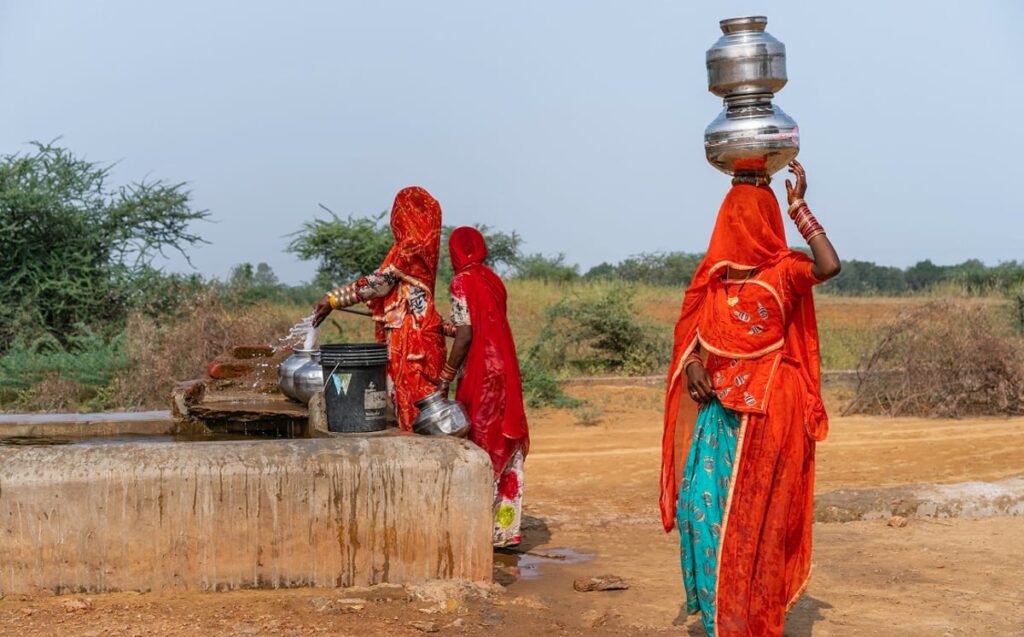### Empowering Women in Climate Solutions: A Focus at COP16
The ongoing 16th Conference of Parties (COP16) to the United Nations Convention to Combat Desertification (UNCCD) in Riyadh, Saudi Arabia, raises a pivotal question: Will policy decisions enable women’s participation in decision-making roles to address desertification in a climate-affected world?
### Advancing Gender Conversations in Climate Policy
A consensus was established during UNCCD COP15 in Abidjan, Côte d’Ivoire, recognizing the Gender Caucus as a crucial platform for enhancing and expediting gender dialogue, policy-making, and implementation of the Gender Action Plan (GAP) at both the international and national levels.
The Gender Caucus was formed during UNCCD COP14 in New Delhi in 2019, bringing together representatives from parties, selected UN agencies, and civil society organizations to provide expert advice on integrating gender considerations into strategies targeting drought, land degradation, and desertification.
### Recognizing Women’s Role in Land Restoration
At UNCCD COP13 in 2017, the GAP was adopted, highlighting the significant role women play in land restoration and sustainable land management. It underscored the necessity of gender equality as a foundational principle for all policies and decisions aimed at achieving the Convention’s objectives.
### Unpacking Gender Inequality in Desertification Challenges
In 2022, the UNCCD commissioned a study titled *The Differentiated Impacts of Desertification, Land Degradation, and Drought on Women and Men,* which illustrated that desertification impacts are not gender-neutral.
UNCCD Executive Secretary Ibrahim Thiaw emphasized that women are key contributors to global efforts to combat land degradation. “They restore land, protect it, and nurture both the land and their communities,” he stated.
The study examined the barriers women face in terms of land rights, access to resources, education, and participation in decision-making processes. For instance, a study in Sri Lanka revealed that only three percent of women held leadership positions in agriculture due to factors such as lack of land ownership and the neglect of their specific needs.
### Gender Disparities in Consultations
Significant disparities persist in consultation processes. In Afghanistan, nearly 70 percent of men reported being consulted regarding their needs, whereas a similar proportion of women were not consulted at all. This oversight further exacerbates the burdens women face, especially during disasters and resource shortages.
During droughts, food security issues force women to prioritize the nutritional needs of their families over their own, often leading to detrimental health consequences. Additionally, the long distances women must travel to collect water increase their risk of musculoskeletal disorders, impairing their capability to make decisions regarding agricultural improvements.
### Women’s Representation in Agricultural Initiatives
Women workers are particularly vulnerable to exploitation and abuse, and their representation in significant land restoration efforts remains low. Female farmers, entrepreneurs, and women’s organizations often find themselves sidelined in key programs and policy processes.
### Saudi Arabia’s Commitment to Women’s Empowerment
At COP16 in Riyadh, Saudi Arabia has showcased its strides toward empowering women to tackle desertification challenges. The nation is committed to ensuring women have a voice in decision-making processes related to drought management. Princess Mashael, co-founder of the non-profit organization Aeon Collective, noted the historical resilience of rural women, who have long navigated desert environments for their livelihoods even before gaining the right to drive in cities.
The National Observatory for Women, based at Princess Norah University in Riyadh, is developing an index to measure women’s participation in climate issues—a welcomed initiative, according to Maimoonah Al Khalil, Secretary General of the Family Affairs Council of Riyadh. She emphasized the importance of this index for assessing women’s contribution to climate action.
### Impact of Government Programs on Women’s Participation
Women’s involvement has been pivotal in government initiatives like the Sustainable Agricultural Rural Development Program (Reef), where they accounted for 63 percent of beneficiaries. Managed by the Saudi Ministry of Environment, Water, and Agriculture, the Reef program has been instrumental in increasing women’s engagement in rural activities.
### Conclusion
As COP16 progresses, the spotlight remains on how policy decisions can pave the way for women’s empowerment in the fight against desertification. By recognizing and addressing the specific challenges faced by women, the global community can promote gender equality and ensure that women are at the forefront of climate action.


